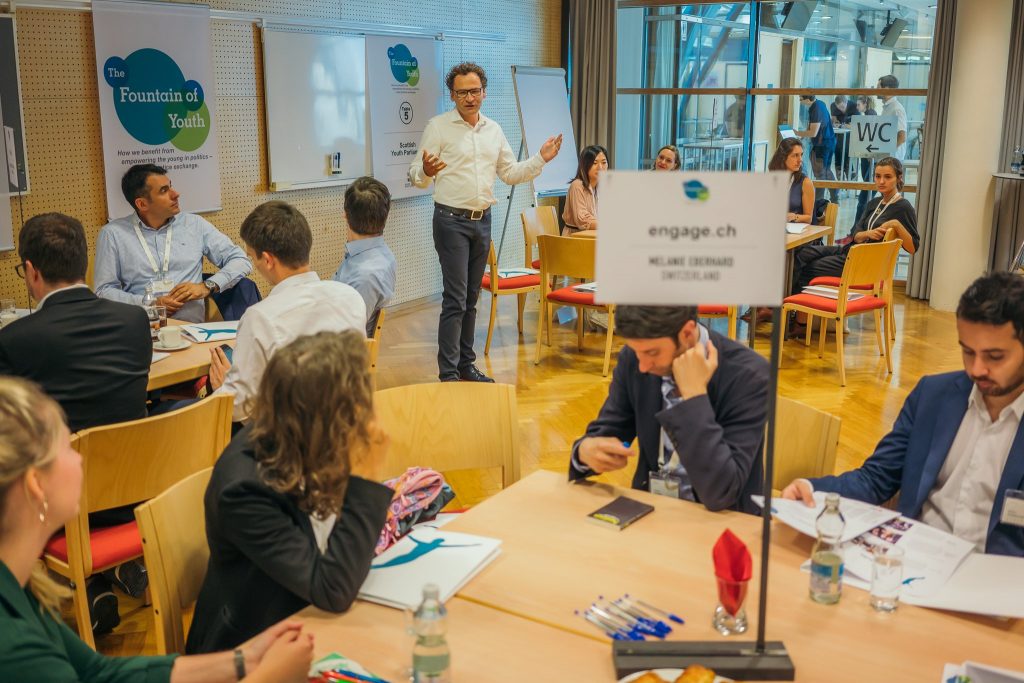Khóa Level 1
Chương trình tiếng anh học thuật
Khóa Level 1 thuộc Chương trình Tiếng Anh Học Thuật dành cho các học viên muốn cải thiện và phát triển đồng đều 4 kỹ năng Nghe – Nói – Đọc – Viết tiếng Anh. Cổng học tập nội bộ learn.youre.vn, được cập nhật thường xuyên theo chương trình học, theo dõi và cập nhật quá trình thực hành và gửi bài tập của học viên. Đội ngũ giảng viên YOURE sẽ chấm và chữa bài chi tiết, đúng thời hạn, nhằm giúp học viên cải thiện nhanh chóng kiến thức và kỹ năng.
Khóa học Level 1 với 20 chủ đề bài học sinh động, tùy bài học học viên được rèn luyện các kỹ năng: nghe, nói, đọc, viết, phát âm, lập luận,… Các bài học ở các khóa được nâng cao dần theo cấp độ, nhằm giúp học viên học thêm kiến thức mới và luôn cải thiện sau mỗi tiết học.
Chuẩn đầu ra tương đương: IELTS: 4.5 – 5.0
- Học phí: 8.000.000 đồng
- 65+ giờ học với giáo viên
- 130 giờ tự học

Thông tin cơ bản
KHÓA Level 1
Chương trình tiếng Anh học thuật
Giáo Trình: Pathways- National Geographic
Thời lượng: 15 tuần
Thời gian: 3 buổi/ tuần; 90 phút/ buổi
Học phí: 8 triệu
Sỉ số 1 lớp học: 6 học viên/ tối đa 8 học viên
Nội dung khóa học LEVEL 1
Chủ đề 1
LIVING FOR WORK
Chủ đề 2
LIFE IN A DAY
Chủ đề 3
GOOD TIMES, GOOD FEELINGS
Chủ đề 4
LEARNING EXPERIENCES
KIỂM TRA GIỮA CẤP ĐỘ
LẦN 1
Chủ đề 5
TREASURES FROM THE PAST
Chủ đề 6
FAMILY TIES
Chủ đề 7
WEATHER & CLIMATE
Chủ đề 8
THE TROUBLE WITH TRASH
KIỂM TRA GIỮA CẤP ĐỘ
LẦN 2
Chủ đề 9
FOCUS ON FOOD
Chủ đề 10
THE WORK IN OUR KITCHEN
Chủ đề 11
HOUSING
Chủ đề 12
FUTURE LIVING
KIỂM TRA GIỮA CẤP ĐỘ
LẦN 3
Chủ đề 13
EXPLORING SPACE
Chủ đề 14
EXPLORATION & DISCOVERY
Chủ đề 15
ART & MUSIC
Chủ đề 16
MUSICIANS WITH A MESSAGE
KIỂM TRA GIỮA CẤP ĐỘ
LẦN 4
Chủ đề 17
OUR RELATIONSHIP WITH NATURE
Chủ đề 18
BEHAVIOR
Chủ đề 19
HOW WE
Chủ đề 20
THE POWER OF IMAGE
KIỂM TRA CUỐI CẤP ĐỘ

LIVING FOR WORK
Listening skills
– Listening for main ideas;
– Listening for details;
– Making inferences
Pronunciation
– Syllable stress
Speaking skills
– Communicating that you don’t understand
– Doing a career-aptitude interview
– Using adverbs of frequency to discuss a works schedule
Student to student
– Giving feedback while listening
Presentation skills
– Introducing yourself
Critical thinking skills
– Making inferences
– Evaluating career options
– Explaining a job’s impact on the world
– Reflecting on the content of an interview
Critical thinking focus
– Identifying main ideas

LIFE IN A DAY
Reading skills
– Responding to statistics
– Predicting for the main idea
– Understanding the gist
– Identifying key details
– Organizing information in Venn diagram
Skill focus
– Skimming for gist
Writing skills
Goal
– Writing sentences about daily activities
Skill
– Understanding the writing process
Critical thinking skills
– Making inferences
– Analyzing and discussing information
– Synthesizing information to identify similarities
– Analyzing stages in a process
Critical thinking focus
– Guessing meaning from context

GOOD TIMES, GOOD FEELINGS
Listening skills
– Understanding the speaker’s purpose
– Checking predictions
– Listening for main ideas
– Listening for details
Pronunciation:
– The intonation of yes/no and -wh questions
Speaking skills
– Asking questions to show interest
– Making small talk
Student to student:
– Asking for repetition
Presentation skills:
– Speaking to a group
Critical thinking skills
– Identifying what makes us laugh
– Judging the appropriateness of laughter
– Considering benefits and drawbacks
– Ranking the importance of benefits
– Generating questions about a presentation
Critical thinking focus
– Understanding the speaker’s purpose

LEARNING EXPERIENCES
Reading skills
– Interpreting maps
– Predicting for the main idea
– Scanning for specific information
– Identifying key details
– Differentiating main ideas from supporting details
Skill focus
– Understanding the main ideas of paragraphs
Writing skills
Goal
– Writing sentences about personal goals
Skill
– Planning your writing
Critical thinking skills
– Making inferences
– Analyzing reasons and motivations
– Synthesizing information to identify similarities
Critical thinking focus
– Inferring character traits

TREASURES FROM THE PAST
Listening skills
– Listening for main ideas
– Making inferences
– Taking notes on specific information
Pronunciation
– The simple past tense -ed word endings
Speaking skills
– Expressing agreement informally
– Asking questions about past events
Student to student
– Making informal suggestions
Presentation skills
– Speaking from notes
Critical thinking skills
– Recognizing the value of the past
– Understanding information on a timeline
– Recalling information about a classmate
– Ranking ways to improve one’s memory
– Evaluating one’s own methods for remembering information
Critical thinking focus
– Recalling facts

FAMILY TIES
Reading skills
– Responding to texts and photos
– Scanning to make predictions
– Understanding the gist;
– Identifying key details
– Identifying main ideas of paragraphs
– Identifying facts and speculations
Skill focus
– Finding the right meaning
Writing skills
Goal
– Writing descriptive sentences about family
Skill
– Speculating
Critical thinking skills
– Synthesizing information to make a decision
– Speculating about reasons
Critical thinking focus
– Analyzing fact and speculation

WEATHER & CLIMATE
Listening skills
– Listening for main ideas
– Listening for details
– Activating prior knowledge
– Taking notes to complete a T-chart
Pronunciation
– Reduced of
Speaking skills
– Expressing likes and dislikes
– Expressing quantity with noncount nouns
– Comparing quantities or amounts
Student to student:
– Showing thanks and appreciation
Presentation skills
– Making eye contact
Critical thinking skills
– Reflecting on ideas about the weather
– Using prior knowledge in a group discussion
– Choosing appropriate activities for different types of weather
– Categorizing information from a map
– Discussing climate change
Critical thinking focus
– Making a list

THE TROUBLE WITH TRASH
Reading skills
– Responding to texts and photos
– Scanning for key details
– Using titles and visuals to make predictions
– Understanding the gist
– Identifying main ideas
– Identifying supporting ideas
– Understanding information in graphs
Skill focus
– Finding supporting ideas
Writing skills
Goal
– Writing sentences to make suggestions
Skill
– Using details to clarify ideas
Critical thinking skills
– Analyzing solutions to problems
– Evaluating possible solutions
– Analyzing a graph to classify information
– Synthesizing information from multiple sources
Critical thinking focus
– Analyzing causes and effects

FOCUS ON FOOD
Listening skills
– Listening for main ideas; Listening for details
– Activating prior knowledge
Pronunciation
– Can and Can’t
Speaking skills
– Expressing opinions
– Conducting a survey about eating habits
– Describing a favorite food
Student to student
– Showing agreement
Presentation skills
– Giving interesting details
Critical thinking skills
– Discussing food and culture
– Categorizing new vocabulary
– Selecting interesting information from survey results
– Ranking important aspects of a restaurant or cafeteria
– Assessing a conversation
Critical thinking focus
– Distinguishing between main ideas and details

THE WORK IN OUR KITCHEN
Reading skills
– Interpreting maps and charts
– Sequencing steps in a process
– Predicting the content of a reading
– Understanding the gist
– Identifying main ideas of paragraphs
– Identifying advantages and disadvantages
Skill focus
– Scanning for key details
Writing skills
Goal
– Writing sentences to express an opinion
Skill
– Using synonyms to avoid repetition
Critical thinking skills
– Personalizing the content of a reading
– Evaluating arguments for and against an issue
– Synthesizing map and textual information
Critical thinking focus
– Reflecting on own preconceptions

HOUSING
Listening skills
– Using context clues
– Listening for main ideas
– Listening for details
– Using visuals to activate prior knowledge
Pronunciation
– Contractions with be
Speaking skills
– Talking about architecture
– Agreeing and disagreeing
– Expressing preferences
Student to student
– Expressing disagreement to a friend
Presentation skills
– Role-playing
Critical thinking skills
– Drawing conclusions following a talk
– Explaining a process
– Choosing the best option
– Responding to a quotation
– Describing a government plan in one’s own words
Critical thinking focus
– Evaluating options

FUTURE LIVE
Reading skills
– Using texts and visuals to make predictions
– Scanning to make predictions
– Understanding the gist
– Identifying main ideas of paragraphs
– Identifying key details
– Sequencing events in a timeline
Skill focus
– Understanding pronoun reference
Writing skills
Goal
– Writing sentences to make predictions
Skill
– Using pronouns to avoid repetition
Critical thinking skills
– Inferring and identifying reasons
– Personalizing information in a reading
Critical thinking focus
– Evaluating a writer’s attitude

EXPLORING SPACE
Listening skills
– Checking predictions
– Listening for main ideas
– Making inferences
– Listening for time expressions
Pronunciation
– Contractions with will
Speaking skills
– Making predictions
– Discussing pros and cons
Student to student
– Asking for another person’s opinion
Presentation skills
– Using signal words
Critical thinking skills
– Making inferences from information in an interview
– Comparing and evaluating schedules
– Explaining future plans
– Discussing a tour of an observatory
– Choosing a destination for a trip
Critical thinking focus
– Discussing pros and cons

EXPLORATION & DISCOVERY
Reading skills
– Interpreting a timeline
– Using titles and visuals to make predictions
– Identifying main ideas
– Identifying key details
– Sequencing events in a timeline
– Labelling a diagram
Skill focus
– Understanding prefixes
Writing skills
Goal
– Writing sentences to give reasons
Skill
– Linking examples and reasons
Critical thinking skills
– Inferring and identifying reasons;
– Personalizing information in a reading
Critical thinking focus
– Evaluating reasons and motivations

ART & MUSIC
Listening skills
– Note-taking while listening
– Listening for specific details
– Listening for the speaker’s main purpose
Pronunciation
– Linking final consonants to vowel sounds
Speaking skills
– Speculating about a situation
– Giving possible explanations
– Discussing ideas about photographs
Student to student
– Responding to invitations
Presentation skills
– Speaking at an appropriate speed
Critical thinking skills
– Identifying visuals
– Making comparisons
– Speculating on topics related to the unit content
– Explaining ideas and opinions
– Generating a list of necessities
Critical thinking focus:
– Supporting an argument

MUSICIANS WITH A MESSAGE
Reading skills
– Understanding a chronology
– Scanning to make predictions
– Understanding the gist
– Identifying main ideas of sections
– Identifying key details
– Using notes to understand key ideas
Skill focus
– Taking notes
Writing skills
Goal
– Writing sentences to explain a preference
Skill
– Presenting one main idea in a paragraph
Critical thinking skills
– Evaluating the relative importance of issues
– Using notes for a group discussion
– Reflecting on language differences and similarities
Critical thinking focus
– Interpreting idiomatic language

OUR RELATIONSHIP
WITH NATURE
Listening skills
– Listening for main ideas
– Identifying opinions
– Listening for details
Pronunciation
– Using stress for emphasis
Speaking skills
– Making comparisons
– Giving reasons
Student to student
– Ending a conversation
Presentation skills
– Ending a presentation
Critical thinking skills
– Reflecting on one’s own culture
– Drawing conclusions following a talk
– Evaluating two studies
– Forming judgments
– Using a graphic organizer to plan a presentation
Critical thinking focus
– Making comparisons

BEHAVIOR
Reading skills
– Responding to text and photos
– Understanding the gist
– Scanning to identify key details
– Identifying main ideas
– Understanding pronoun reference
Skill focus
– Recognizing noun clauses
Writing skills
Goal
– Writing a paragraph to make a comparison
Skill
– Writing a topic sentence
Critical thinking skills
– Synthesizing information to make an evaluation
– Inferring implicit information
– Inferring a writer’s assumptions
Critical thinking focus
– Making inferences

HOW WE
Listening skills
– Listening for main ideas
– Making inferences
– Note-taking
Pronunciation:
– Thought groups
Speaking skills
– Talk about the duration
– Discussing conclusions
Student to student:
– Having a telephone conversation
Presentation skills:
– Inviting and answering questions from the audience
Critical thinking skills
– Identifying visuals
– Making inferences
– Ranking means of communication
– Reflecting on one’s own use of technology for communication
– Organizing a group presentation
Critical thinking focus:
– Drawing conclusions

THE POWER OF IMAGE
Reading skills
– Responding to photos
– Skimming/Scanning to make predictions
– Understanding the gist
– Identifying main ideas of paragraphs
– Relating key details to visuals
– Identifying events in a narrative
Skill focus:
– Recognizing subordinating conjunctions
Writing skills
Goal:
– Writing a descriptive paragraph about a photograph
Skill:
– Using supporting ideas in a descriptive paragraph
Critical thinking skills
– Applying information to a new context
– Analyzing and discussing reasons
– Evaluating photographs based on criteria
Critical thinking focus:
– Understanding mood






